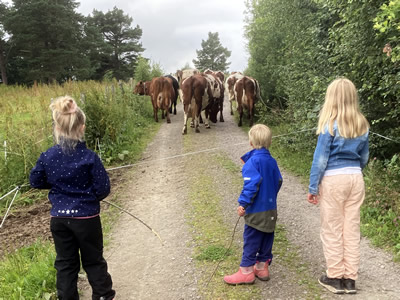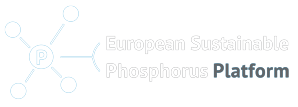NORSØK
The Norwegian Centre for Organic Agriculture (NORSØK) was established in 1986, as a private foundation and research institute to conduct research and development activities to support the development of Organic production in Norway. From 1996 to 2005 NORSØK was part of Bioforsk (which is now NIBIO). Today, 25 people work at NORSØK, located at Tingvoll better reference https://en.wikipedia.org/wiki/Tingvoll, close to Trondheim in a region agriculturally dominated by dairy farming, but where aquaculture and fishery are much larger industries. NIBIO (formerly Bioforsk) also has a department at Tingvoll, and NORSØK and NIBIO collaborate closely.
 Soil fertility and the fertilisation of crop plants is a major research topic for Organic Farming, and since 2012, NORSØK is working on recycled fertilisers and soil improvers. We have tested struvite from Norwegian sewage (https://orgprints.org/id/eprint/36472/ ), sediments from hydrolysed slaughter waste (ref https://orgprints.org/id/eprint/32518/ ) , and marble mining residues (https://orgprints.org/id/eprint/32037/ ). More recently, several projects have been carried out with residual materials from marine industries. Fishbones are a rich source of N, Ca and P, and seaweed is a rapidly emerging industry which may complete fish residues in K, S, etc.
Soil fertility and the fertilisation of crop plants is a major research topic for Organic Farming, and since 2012, NORSØK is working on recycled fertilisers and soil improvers. We have tested struvite from Norwegian sewage (https://orgprints.org/id/eprint/36472/ ), sediments from hydrolysed slaughter waste (ref https://orgprints.org/id/eprint/32518/ ) , and marble mining residues (https://orgprints.org/id/eprint/32037/ ). More recently, several projects have been carried out with residual materials from marine industries. Fishbones are a rich source of N, Ca and P, and seaweed is a rapidly emerging industry which may complete fish residues in K, S, etc.
NORSØK also works with animal farming systems and on management of animal manure e.g., manure storage gas emissions, soil organic matter dynamics and soil health. NORSØK (and NIBIO Tingvoll) are located on an Organic dairy farm, and soil characteristics, such as the P concentrations, are monitored since 1994.
NORSØK has followed ESPP activities over several years, since we participated in the CORE Organic project “Improve P” (2013-16 ref https://orgprints.org/id/eprint/30368/ ), assessing how more recycled fertilisers could be applied in Organic agriculture. With several current projects on recycled fertilisers, it is now a time to become an ESPP member, says NORSØK director, Ms. Turid Strøm.

